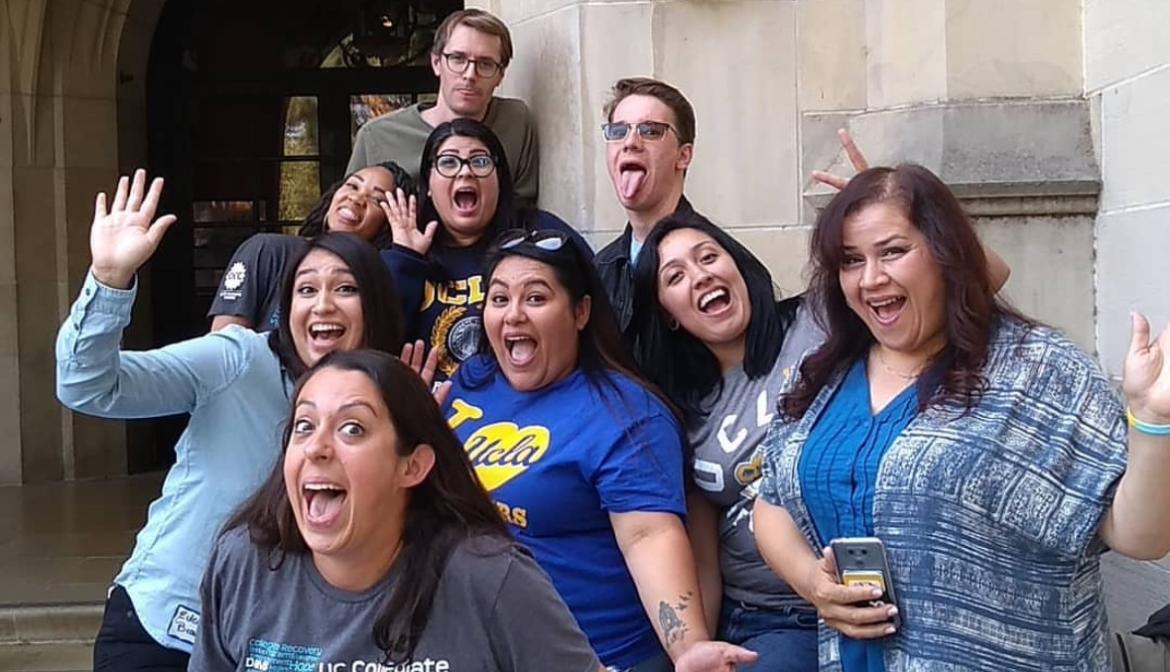Our Work

Mission
The Collegiate Recovery Program provides support to UCLA students on their path to recovery from substance use and other addictive behaviors or are impacted by addiction in any way. We are dedicated to providing academic, wellness, and emotional support to students who are in recovery or who are considering recovery. We understand that recovery is an ongoing process and that the college environment can make this commitment especially challenging. Through individual support, education, and campus advocacy, we aim to create an inclusive environment and supportive community to help students thrive at UCLA and beyond.
Vision
The Bruin Resource Center and the Collegiate Recovery Program envisions thriving, dynamic, and resilient communities of students and staff.
How We Got Here
In 2014, six sober students from all parts of campus—transfer students, PhD students, law students—started an on-campus 12-step meeting and began to create a supportive community for UCLA students in recovery. One of the students heard about a UC Collegiate Recovery Retreat hosted by UCOP. At that conference in Santa Cruz, the students learned about the existence of collegiate recovery programs, met sober students from across the UC system, and were inspired to start a collegiate recovery program at UCLA.
An initial grant helped the students officially establish Bruins for Recovery (B4R) in 2014, a student organization that hosts weekly open recovery meetings and sober events on campus. B4R works to create a safe, sober campus on which students can flourish and provides a support group for students in or interested in recovery. B4R also has a goal of combating the stigmas of addiction.
In 2016, the group received a larger donation which allowed them to meet the criteria needed to establish UCLA’s Collegiate Recovery Program, which included a physical office space and staff member. UCLA’s CRP is a division of student affairs that aims to provide institutional support for students in recovery through campus advocacy, education, individual academic and personal support, social events and retreats, and referrals to relevant campus and community resources.
Both B4R and CRP remain active on campus and work closely together.